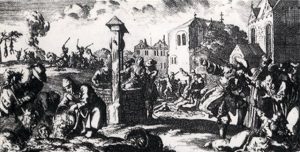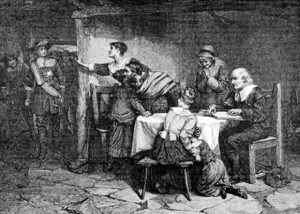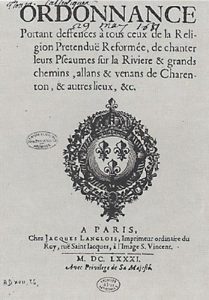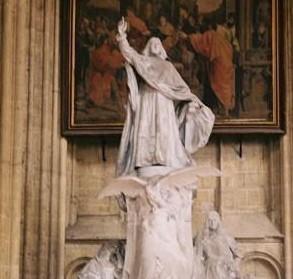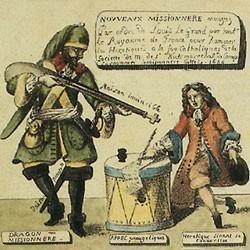From legal persecution to violent repression
As planned, Louis XIV gradually stifled Protestantism. His attitude towards the latter was dictated the demands of his foreign policy dictated. The Catholic clergy undertook a policy of conversion of Protestants to Catholicism and used arguments that reduced the theological differences between them to a minimum. Missions aiming at conversion were accompanied by offers of various social benefits to the new converts.
Under the initiative of bishops, the parliaments began to harass Protestants by on legal grounds by enforcement of the Edict of Nantes. The slightest irregularities were looked for and used as a pretext for closing down Protestant churches.
The king gradually restricted the Edict by limiting freedom of worship, free access of Protestants to some professions and even freedom of conscience.
Protestant resistance was limited and passive. It began in 1683 when the lawyer Claude Brousson called for secret assemblies amongst the rubble of destroyed churches. This, however, was forbidden.
Violent repression by means of dragonnades began in the Poitou in 1681.The king’s soldiers were forcibly boarded in Protestant homes and obliged the Protestants to feed and pay them. They sold or destroyed the furniture, ill-treated their hosts and even the children until they abjured. The dragonnades became widespread south of the Loire in 1685.
As a result, Protestants converted in large numbers or fled abroad – despite royal interdiction – to the countries of refuge.

